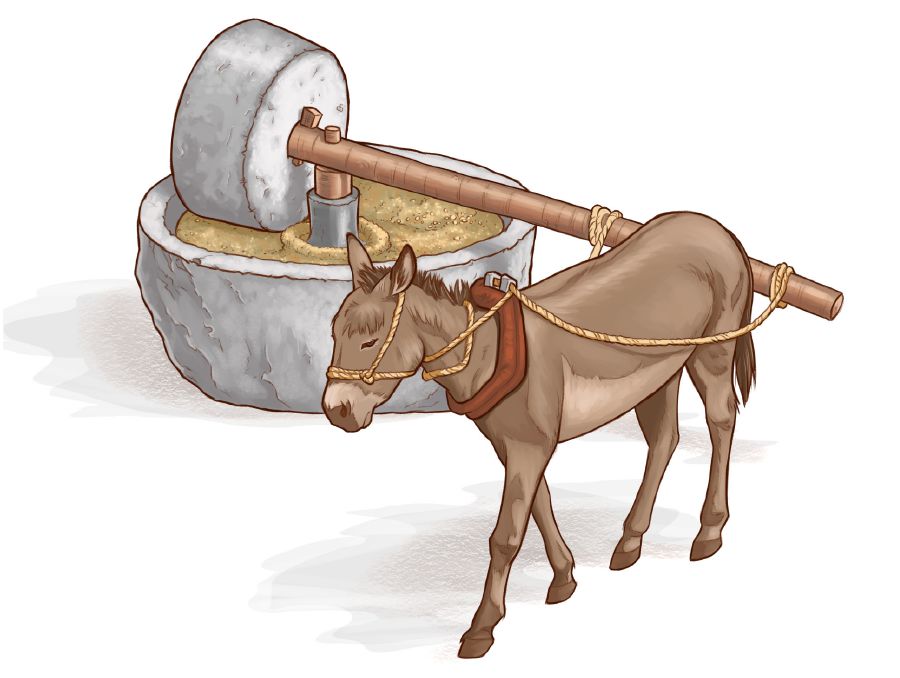
This week read Luke 16&17
As we read through Luke each week there will be two devotions focusing on particular passages. Click here to read past devotions.
Focus Point: Jewelry (Luke 17:1-2)
 There were multiple types of millstones. Smaller stones for each household, large stones used by the whole community. With some, the stones were perpendicular (pic). With others the round stones were parallel, sitting on top of one another (grooves drew the grains between the stones). Jesus most likely refers to the large community millstone. “It would be like a necklace with a VW attached.” (Vinson 425)
There were multiple types of millstones. Smaller stones for each household, large stones used by the whole community. With some, the stones were perpendicular (pic). With others the round stones were parallel, sitting on top of one another (grooves drew the grains between the stones). Jesus most likely refers to the large community millstone. “It would be like a necklace with a VW attached.” (Vinson 425)
Is one sin worse than another? In the sense of how it affects your relationship with God, I don’t believe so. Each breaks our relationship with God. But sin also affects the world around us. And in that sense sins vary in severity. Certainly, Jesus calls us to a strict ethic, but here is one of the only times he declares a consequence that is better than the sin (about Judas Jesus says, “It would be better for him if he had not been born.” Mt 26:24).
Connections to Today: Who causes a little one to stumble? Of course, this answer is unending, but when I talk to the lost, they often reference the church… the people, the pastors…
“The greatest single cause of atheism in the world today is Christians, who acknowledge Jesus with their lips and walk out the door and deny Him by their lifestyle. That is what an unbelieving world simply finds unbelievable.” – Brennan Manning, DC Talk Jesus Freak
Tidbits:
- “toughen up, buttercup” — These verses (17:1-2) follow chapter 16 urging financial giving and lead into a passage on forgiving – even those who would lead you astray (v3-4). After all these verses, it is no wonder the disciples cry out “increase our faith” (v5). Who can live up to this standard… But Jesus replies with a story… instead of toning down the message, he says, “So you also, when you have done everything you were told to do, should say, ‘We are unworthy servants; we have only done our duty’” (v10).
- body and vultures? (17:37) — Garland, 701-2, notes that the word “dead” is not in the Greek. Instead, it is simply “body”. Further, the word translated “vulture” is more typically translated “eagle”. He puts forth this translation: “Where the body is, there also the eagles will be gathered up together.” While opaque, Jesus answers the disciple’s question where will the resurrected be taken? They will be taken to be with the crucified and resurrected Savior.
